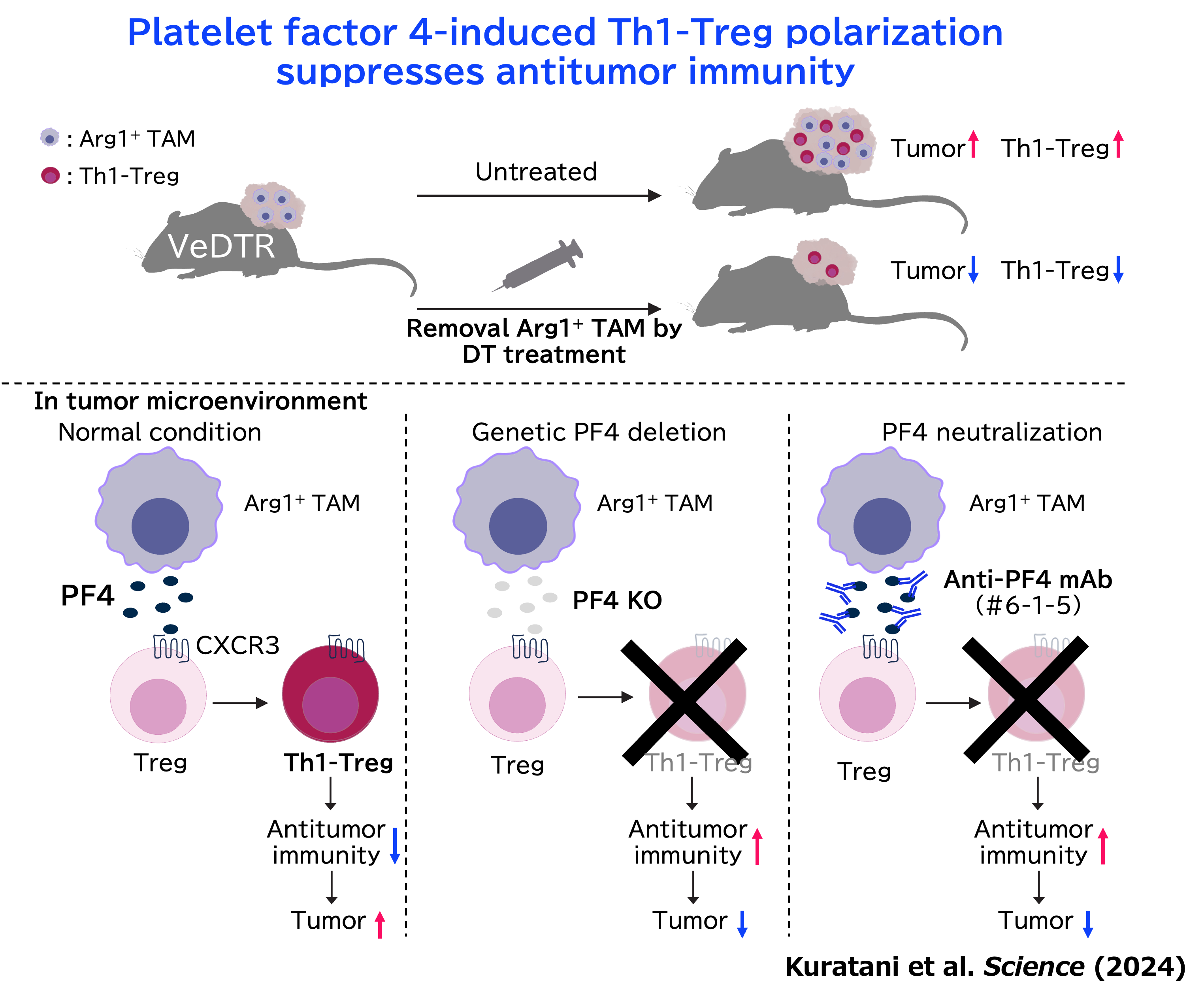Platelet factor 4-induced Th1-Treg polarization suppresses anti-tumor immunity (Yamamoto Lab, in Science)
Major points
- The chemokine PF4 secreted by Arg1-producing tumor-associated macrophages (Arg1+ TAM) induces differentiation of Th1-Tregs that suppress cancer immunity, leading to tumor growth.
- Neutralization of PF4 inhibits Th1-Treg differentiation, activates antitumor immunity, and suppresses tumor growth without triggering autoimmunity.
- Targeting PF4 may lead to safer anti-tumor immunotherapy
Summary
It has been known that Th1-Tregs, a subset of Tregs that strongly suppress cancer immunity in tumors, highly accumulate in tumors, but the molecular mechanism of this accumulation was unclear.
In this study, our group generated genetically engineered mice that can specifically label and remove Arg1+ TAMs by the VeDTR mouse system, and investigated the role of tumor-associated macrophages. Removal of Arg1+ TAM in tumor-bearing mice resulted in a decrease in the percentage of Th1-Tregs in the tumor and activation of anti-tumor immunity. Furthermore, we found that the humoral factor PF4 (also known as CXCL4) produced by Arg1+ TAM is involved in the differentiation of Tregs into Th1-Tregs. Inhibition of PF4 function by PF4-deficient mice or administration of anti-PF4 neutralizing antibody resulted in strong activation of cancer immunity accompanied by a decrease in the percentage of Th1-Tregs in cancer tissues, resulting in suppression of tumor growth (see above figure). Inhibition of PF4 function by PF4-deficient mice or administration of anti-PF4 neutralizing mAb resulted in strong activation of antitumor immunity with reduction of the ratio of Th1-Tregs in tumor tissues, and therefore inhibition of tumor growth. Furthermore, administration of anti-PF4 mAb did not cause autoimmunity. These findings suggest that PF4 may be a novel target for safe antitumor immunotherapy.
This article was published in Science, on Nov 22, 2024.
タイトル: “Platelet factor 4-induced Th1-Treg polarization suppresses anti-tumor immunity”
Authors: Ayumi Kuratani, Masaaki Okamoto, Kazuki Kishida, Daisuke Okuzaki, Miwa Sasai, Shimon Sakaguchi, Hisashi Arase, Masahiro Yamamoto
DOI: 10.1126/science.adn8608
Links
- Home
- Achievement
- Research Activities
- Platelet factor 4-induced Th1-Treg polarization suppresses anti-tumor immunity (Yamamoto Lab, in Science)








